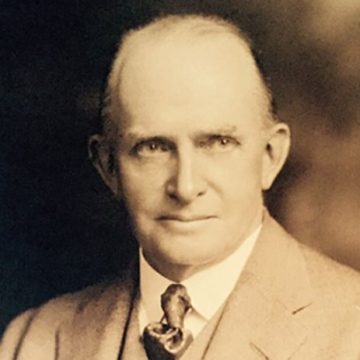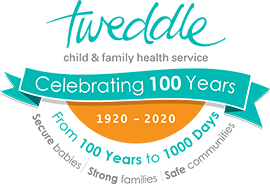
Background
Joseph Thornton Tweddle (1865-1943), businessman and philanthropist, was born on 14 April 1865 at Winlaton, Durham, England, the eighth child of Thomas Tweddle, butcher, and his wife Mary, née Reay. Educated at the local council school, he had some commercial experience with an ironmongery firm at Newcastle upon Tyne; when Joseph’s health collapsed, his father helped him to emigrate to Victoria in 1887.
Tweddle worked at Mincha West on the farm of Henry Angus, to whose brother he had probably brought a letter of introduction; he later partnered the brothers in constructing irrigation works at Kow Swamp and at Benjeroop. When the latter scheme failed due to drought, Tweddle took a clerkship with the Colonial Gas Association Ltd, Melbourne, and then with a firm of solicitors. On 5 April 1893, he married Lilian Billis (d.1895) at Auburn with Presbyterian forms.
As an accountant, in 1896 he joined Andrews Bros Pty Ltd, a woollen and manchester warehouse in Flinders Lane. By 1899 he was a director. In 1904 Joseph married Isabel May Hunter. He was a member in 1915-16 of a royal commission, chaired by Alexander Cooch, to inquire into the Victorian Public Service: its report was scathingly critical of management and operations. Tweddle had been appointed managing director of Andrews Bros in 1915. The firm, whose business expanded greatly during World War I, had branches in every State. A London office made regular trips to England obligatory for Tweddle; in 1933 he became chairman of directors.
Joseph Tweddle was Councillor (1915-39) and president (1935-39) of Queen’s College at the University of Melbourne, and a councillor of Wesley College (1921-43). He funded extensions to both institutions which were completed in 1923.
JT Tweddle & The Tweddle Hospital for Babies and School of Mothercraft
Tweddle Child and Family Health Service came into being in 1920 commencing with The Society for the Health of Women and Children of Victoria. The Society was co-founded by Sister Maude Primrose (promoter of the Visiting Trained Nurses’ Association of Victoria and of the Truby King or Plunket system of baby health care), well-known lung, chest and heart specialist Dr J W. Springthorpe and Mr J Hume-Cook (Honorary Secretary of the Society).
Together they were appalled at the infant mortality figures and approached Mr Tweddle who had a property at Greensborough, which was rumoured he would be willing to provide as a hospital.
But in 1920 Greensborough was virtually in the ‘wilds’, so that idea was scrapped. In the meantime, Miss Primrose had enlisted other helpers including Mr Gent, the Town Clerk of Footscray and a Mr J.Levy. They called on Mr Tweddle again. Footscray Council granted the present site and Mr Tweddle donated £3000 pounds to start building operations. He guaranteed an overdraft up to £7000 pounds, the amount he received for his Greensborough property
“Save the Babies”
A Foundation stone was laid at the site in 1922; The Tweddle Plunket Baby Hospital and the School of Mothercraft. In performing a ceremony at the laying of the foundation stone, Mr J.T.Tweddle stated that after the horrible destruction of life in the world war something had to be done to restore the wastage, and in every country, there was the cry,” Save the Babies”
Mr.Tweddle said that 1914 saw the beginning of the most horrible destruction of human lives in the world’s history. The veneer of civilisation disappeared and the senseless destruction continued for four long years. Nothing was gained by it, and when the fumes and reek of war lifted the cry went up all over the world that something had to be done to make good the wastage of war. Every where one heard “Save the Babies!”. During the war period Australia lost 50000 babies, and a great percentage of these young lives could have been saved.
Mr Tweddle said, “The hospital would be built and opened free of debt, but the grounds had to be levelled and beautified.
He was very sorry for the absence of Sister Primrose. The hospital was due to her in great measure, for she had battled for years to get it. She had faith, and that faith had been realised”.
Official opening
The Tweddle Hospital for Babies and School of Mothercraft, the training centre for Plunket and Primrose nurses officially opened at Footscray in 1924.
Tweddle was tall and prepossessing. He attributed his philanthropy to the influence of a devoutly Methodist upbringing. A connoisseur of art and an enthusiastic collector, he was a trustee from 1921 of the Public Library, museums and National Gallery of Victoria.
Described as ‘one of the best-known figures in business, pastoral and art circles in Melbourne’, he died on 16 July 1943 at Richmond and was cremated. His wife, son and two daughters survived him; his estate was sworn for probate at £118,878; Queen’s College holds his portrait.
References
